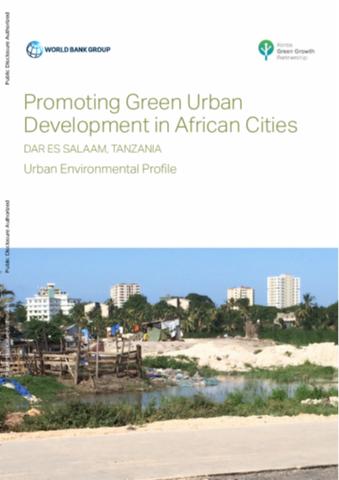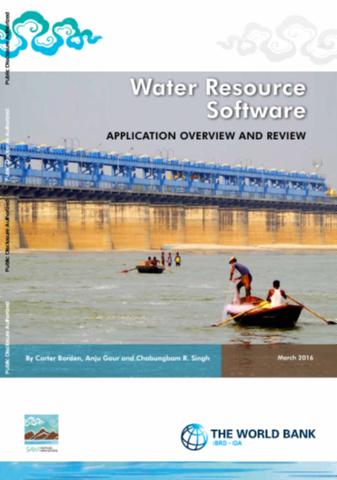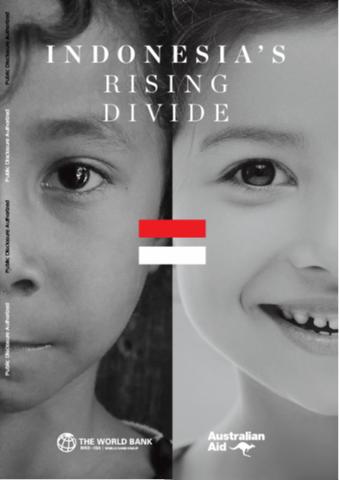The World Bank is a vital source of financial and technical assistance to developing countries around the world. We are not a bank in the ordinary sense but a unique partnership to reduce poverty and support development. The World Bank Group has two ambitious goals: End extreme poverty within a generation and boost shared prosperity.
- To end extreme poverty, the Bank's goal is to decrease the percentage of people living on less than $1.25 a day to no more than 3% by 2030.
- To promote shared prosperity, the goal is to promote income growth of the bottom 40% of the population in each country.
The World Bank Group comprises five institutions managed by their member countries.
The World Bank Group and Land: Working to protect the rights of existing land users and to help secure benefits for smallholder farmers
The World Bank (IBRD and IDA) interacts primarily with governments to increase agricultural productivity, strengthen land tenure policies and improve land governance. More than 90% of the World Bank’s agriculture portfolio focuses on the productivity and access to markets by small holder farmers. Ten percent of our projects focus on the governance of land tenure.
Similarly, investments by the International Finance Corporation (IFC), the World Bank Group’s private sector arm, including those in larger scale enterprises, overwhelmingly support smallholder farmers through improved access to finance, inputs and markets, and as direct suppliers. IFC invests in environmentally and socially sustainable private enterprises in all parts of the value chain (inputs such as irrigation and fertilizers, primary production, processing, transport and storage, traders, and risk management facilities including weather/crop insurance, warehouse financing, etc
For more information, visit the World Bank Group and land and food security (https://www.worldbank.org/en/topic/agriculture/brief/land-and-food-security1
Resources
Displaying 436 - 440 of 4906Success and Failure of Reform
The paper analyzes the linkages between the reform strategies in transition countries and
economic performance. We focus on agriculture because of the sharpness of the policy
changes, fundamental differences among countries, and relative simplicity of agricultural
relationships. We document post reform performance in the transition countries of Asia and
Europe. We show how: a.) pricing reform and subsidy reductions; b.) land rights reform
and policies that affect farm restructuring; and c.) the presence institutions that facilitate
Cotton in the Global Context
Production in 2004 was actually running
higher than consumption prior to 1995 and this has caused the existence of a world surplus of
baled cotton in the form of stocks in warehouse. It is the existence of these “ending stocks” that
has a large effect on the international price of cotton. Consumption began to
outpace production in 2001 to 2003 period and this, mixed with crop disasters in various regions,
caused the international price to rise. The reaction from many countries was to increase
Promoting Green Urban Development in African Cities
The city of Dar es Salaam, Tanzania has undergone a period of unprecedented urbanization that has contributed to the degradation of the city’s natural environment. With a growth rate above or near 5% for the past three decades, it is the fastest growing city in East Africa. The arrival of thousands of in-migrants year after year has overwhelmed the city’s ability to deliver adequate public services, housing and jobs. Unplanned, densely populated informal settlements that lack basic water, sewer, and waste services now cover much of the city’s land area.
Water Resource Software
This document provides an overview of how water resource software’s (WRS) are used to manage water resources issues, criteria for WRS selection, and a high level review of WRS currently available that central and state governments of India can use for water management. The water resource issues covered include water allocation and planning, flood management, groundwater management, conjunctive use, water quality, and sediment transport.
Indonesia's Rising Divide
In 2015, Indonesia stands as an increasingly divided country, unequal in many ways. There is a growing income divide between the richest 10 percent and the rest of the population, and this gap is driven by many other types of inequality in Indonesia.People are divided into haves and have-nots from before birth. Some children are born healthy and grow up well in their early years; many do not. Some children go to school and receive a quality education; many do not. In today’s modern and dynamic economy; most do not and are trapped in low-productivity and low-wage jobs.









